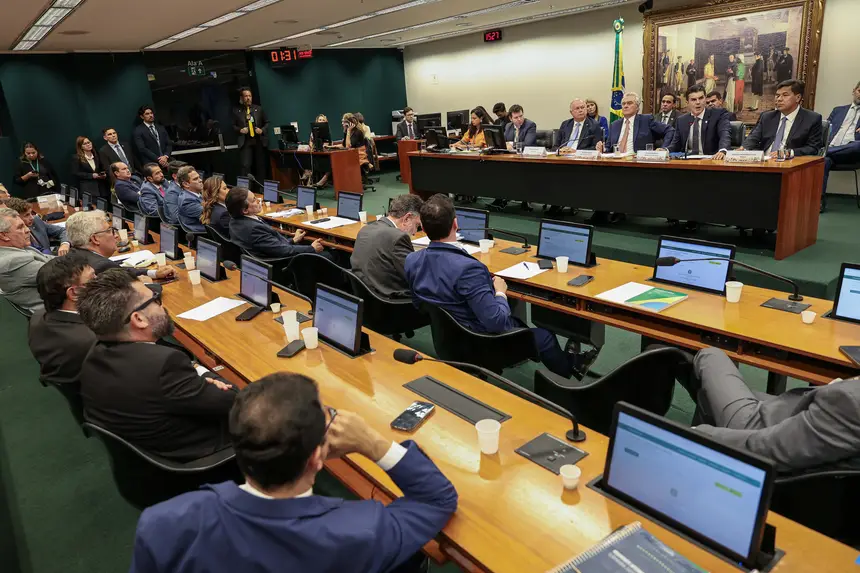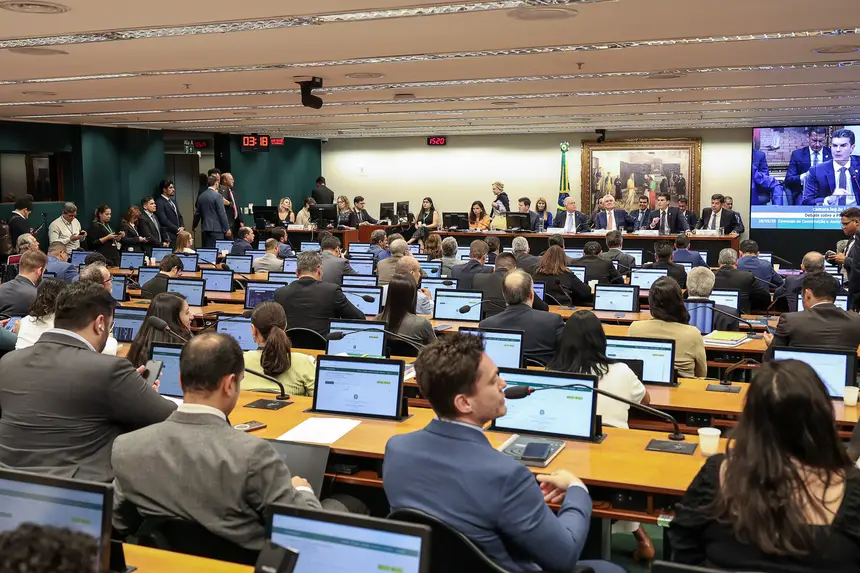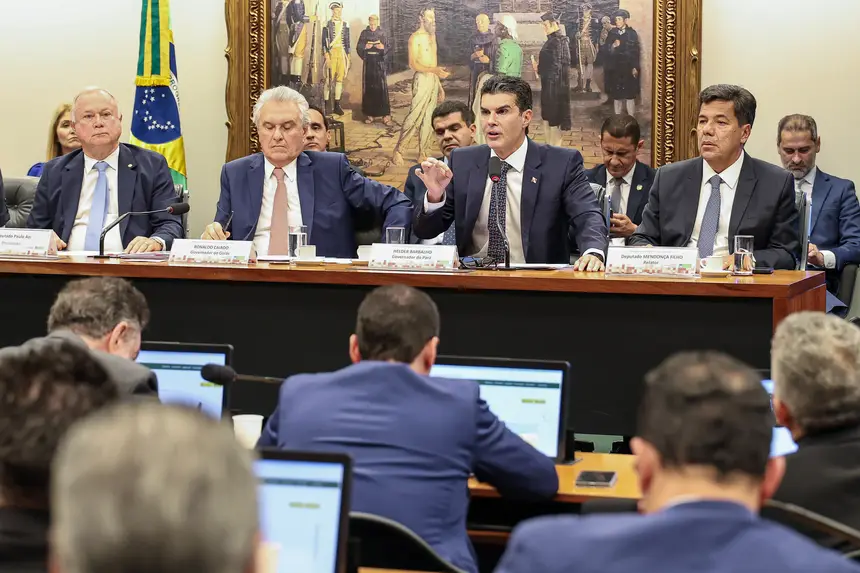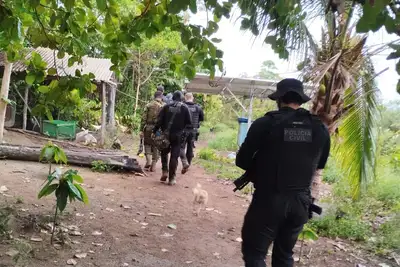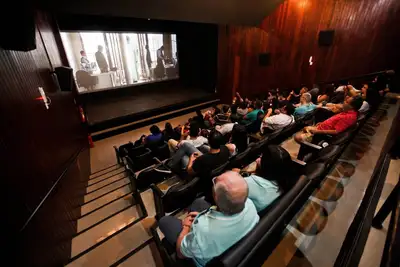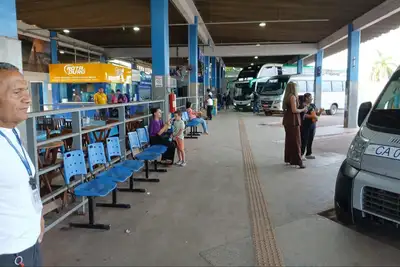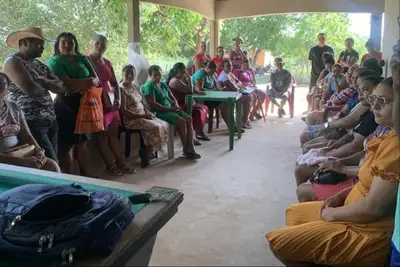Governor of Pará, Helder Barbalho advocates for a national coalition against organized crime
The proposal, according to the head of the State Executive, aims to immediately dismantle the criminal factions currently operating in Rio de Janeiro, considered "the largest hub for disseminating factions to the rest of Brazil"
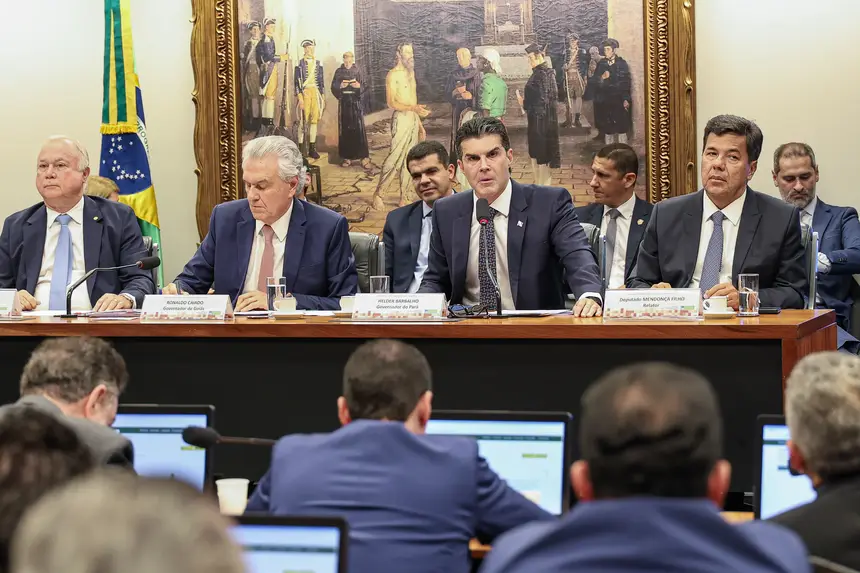
The governor of Pará, Helder Barbalho, participated this Wednesday (28) in Brasília, in the Public Hearing of the Constitution and Justice Commission of the Chamber of Deputies, which discussed the PEC (Proposed Amendment to the Constitution) of public security. He advocated for the formation of a national coalition to effectively and coordinately confront organized crime in Brazil.
The head of the state executive was at the hearing alongside the president of the CCJC, Paulo Azi, the governor of the State of Goiás, Ronaldo Caiado, Deputy Mendonça Filho, and the Executive Secretary of the CCJC, Gustavo Pires.
The proposal, according to Helder, aims to immediately dismantle the criminal factions currently operating in Rio de Janeiro, considered "the largest hub for disseminating factions to the rest of Brazil."
The PEC of public security, proposed by the Federal Government, aims to unify the security system and combat organized crime in Brazil, with coordinated actions among the Union, states, and municipalities.
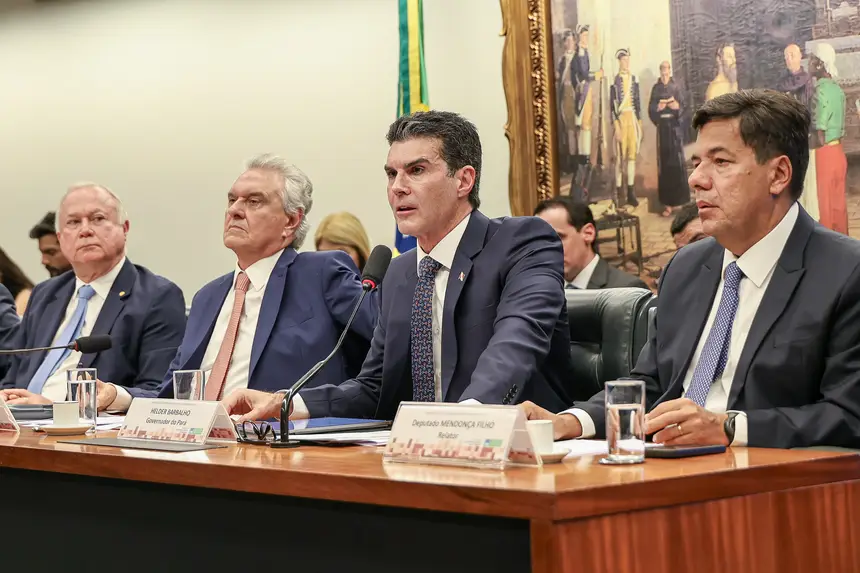
“Ladies and gentlemen, I propose that Brazil forms a coalition against organized crime, a union among all state forces and Brazilian society, with the immediate goal of dismantling the criminal factions in Rio de Janeiro,” Helder stated in his speech.
According to the governor, confronting crime can no longer be done in isolation. “There is no way to defeat a criminal organization by only attacking one arm, at the tip. We need to confront the root of the problem,” he defended.
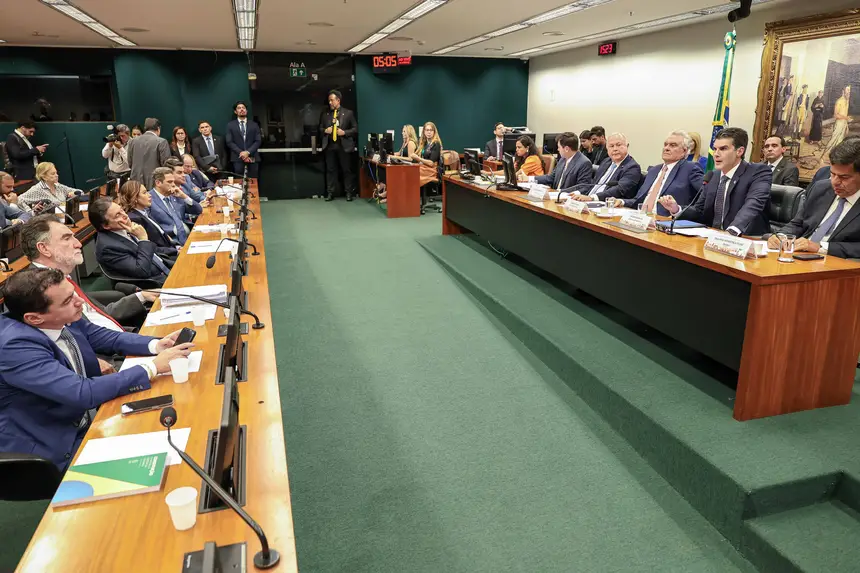
National Strategy
The governor of Pará justified why his coalition proposal has Rio de Janeiro as its initial focus.
“And why in Rio de Janeiro? Because Rio is the largest hub for disseminating factions to the rest of Brazil. Because the leaders of some of the largest factions in Brazil are in Rio de Janeiro. Because the city of Rio is the gateway, the showcase, and the greatest symbol of Brazil to the entire world. Practically speaking, we should start in Rio because when we focus on one point, what seemed impossible becomes possible,” he explained.
He highlighted that a single faction from Rio is already present in 23 Brazilian states. “We have news of a faction from Rio de Janeiro present in 23 states. The other four federative units are dominated by a rival faction,” he revealed.
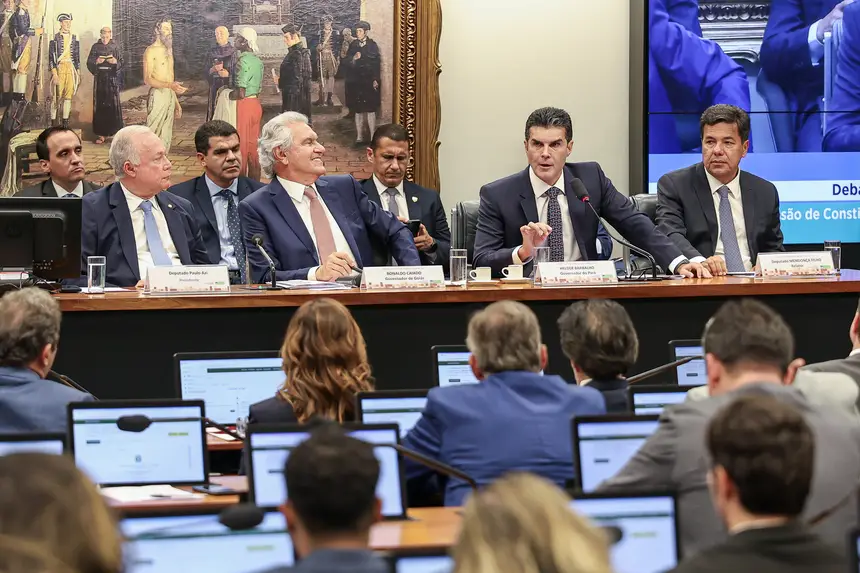
The example of Pará in combating crime
Helder Barbalho highlighted the experience in Pará as an example that qualified and planned confrontation yields results.
“Pará is making a record investment in combating crime. More than R$ 6 billion. We have moved up 19 positions in the national ranking of investment in security. We had the lowest rate of violent crimes in the last ten years,” he pointed out.
Among the public policies implemented in Pará, Helder highlighted the Peace Factories as a strategy for prevention, social development, and reclaiming territories dominated by crime.
“The Peace Factories are facilities that combine services in education, health, culture, sports, leisure, and professional training. There are already 13 units, with a total of 40 planned by 2026. All in vulnerable regions. More than 8.5 million services have already been provided. The reduction of violent crimes reaches 90% in some neighborhoods,” he emphasized.
For the governor of Pará, this experience shows that combating violence is not only done through repression but also through inclusion. “The Peace Factory works because it combines the presence of State Forces with another essential element in this struggle: hope. Faith in the future,” he stated.
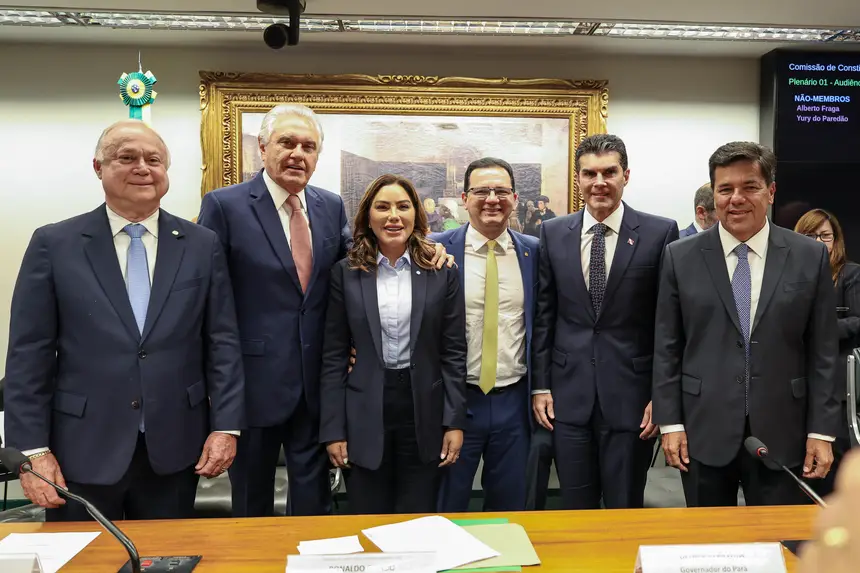
National Coalition: unity of all against organized crime
In presenting his proposal, Helder was categorical in stating that the proposal is for a necessary and possible action.
“That is why I am here today to propose to you the creation of a National Coalition against organized crime. To unite all the Forces of Brazil with a single objective: to confront the criminal factions. Police, Justice, Congress, Federal and State Governments, Municipalities, Companies, Churches, Civil Society Organizations. All groups willing to unite in this operation,” he defended.
The necessary actions
As necessary actions, the governor detailed which actions would be priorities in this coalition.
“To approve tougher, faster, and more modern laws. To establish a central investigation nucleus, with unified structure and database. To carry out large, well-planned operations. To arrest, seize, and dismantle. But doing this across Brazil seems like an impossible task,” he warned.
“And I will be frank and objective with you: the PEC alone will not solve the problem. But it includes several good measures. I want to highlight three points,” he began.
The most important measure, according to him, is the constitutionalization of the national security fund. “This is the most important measure of the PEC, in my opinion. But it does not seem sufficient to just be in the Constitution. It is necessary to establish a mandatory percentage of the Budget for Security, as exists for Health and Education. Today, 90% of Public Security is funded by state governments,” he highlighted.
Despite recognizing progress, he was direct: “In summary, the PEC has positive points, but it is far from solving the entire problem. The changes in the PEC are important, but they take time. The Coalition against crime in the city of Rio de Janeiro will allow the debate to advance without us being stagnant.”
Results in Pará show that it is possible
The governor also presented data showing the concrete results of the actions implemented in Pará.
“Reduction of violence for six consecutive years, with more than 53% decrease in the homicide rate. More than 1,400 faction members arrested just last year. We have been two years without bank robberies, defeating the 'Novo Cangaço' gangs, and three years without armored car robberies. In 2017, Belém was considered the most violent capital in the country. Today it is the 5th safest,” he concluded.


